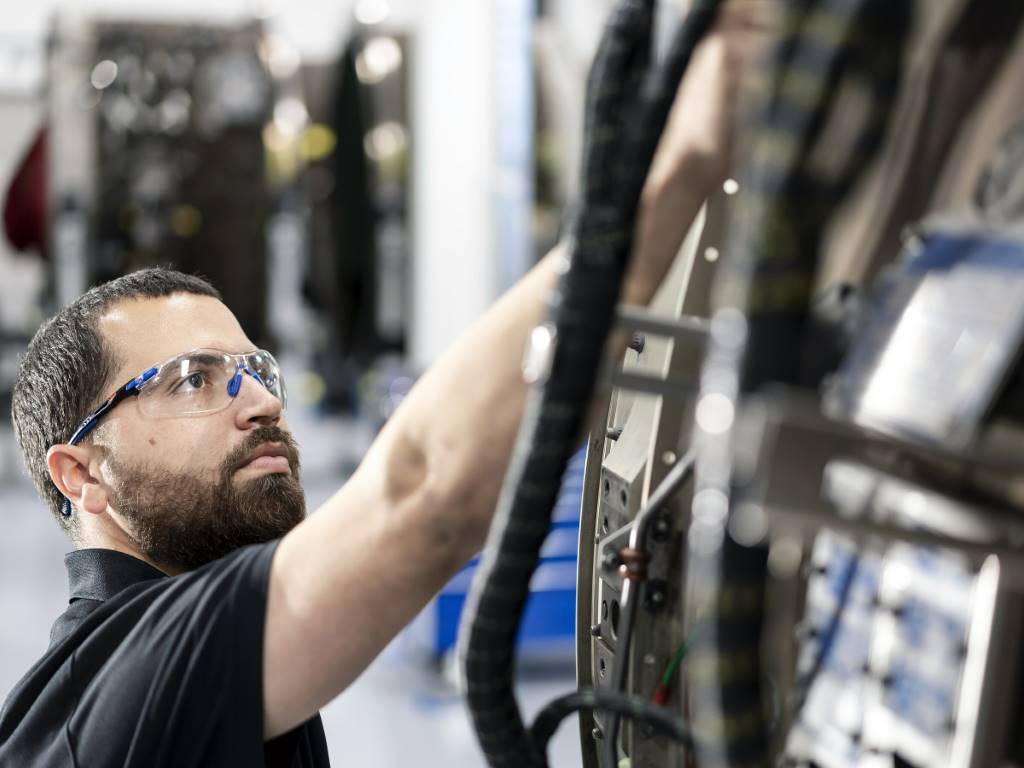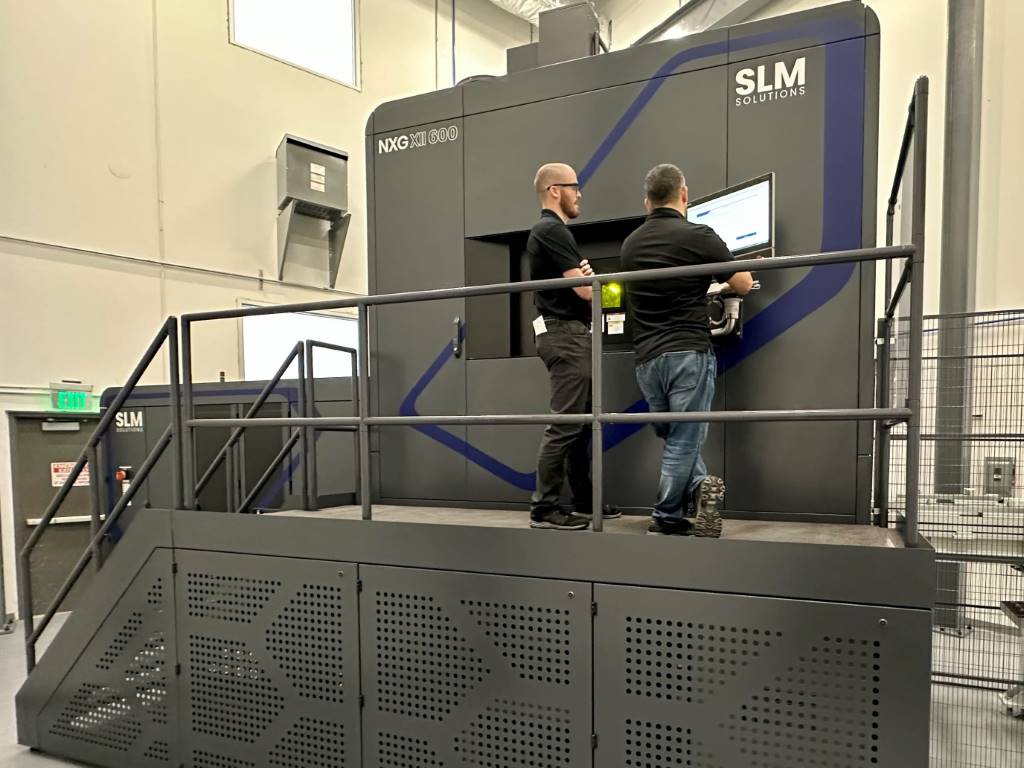It’s a material whirl!

Bindatex – Europe's only independent specialist in the precision cutting of advanced materials – is working with BAE Systems to create an agile UK supply chain. Aerospace Manufacturing reports.
Bindatex – Europe's only independent specialist in the precision cutting of advanced materials – is working with BAE Systems to create an agile UK supply chain. Aerospace Manufacturing reports. Manufacturers with varied project sizes, and therefore differing order quantities, are often faced with the task of matching suppliers with jobs in the most effective way possible to ensure optimum efficiency. BAE Systems is no exception to this – including when it comes to its composites suppliers.
With the aerospace sector expected to grow by 6.8% over the next few years, according to a recent UK parliamentary briefing note, the need for a secure yet flexible supply chain is of critical importance. Understandably, advanced materials for different projects need to be processed to varying deadlines, which often means different suppliers.
This is why BAE Systems has forged a working relationship with Bolton-based Bindatex, assigning it research and development projects – including those for composite research programmes – allowing prepreg manufacturers to concentrate on their commitments to the long-term aerospace programmes.
The relationship will see Bindatex perform an important role, processing composite materials to tight tolerances for use in a number of significant projects. Chris Lever, managing director of Bindatex, says: “The pace of the supply chain in the world of composites can be hampered by long lead-times so ultimately, the aim of the partnership is to speed up the process for the benefit of the aerospace sector, which is one of the major industries we supply.”
Bindatex sits between the carbon fibre prepreg material manufacturer and the composite part manufacturer as the only independent provider of slitting, cutting and sheeting services for composites in Europe. The company can slit prepreg composite materials down to widths as narrow as 3.175mm to the high tolerances demanded by aerospace applications on finished slit coils. The resulting tapes of material, once accurately laid adjacent to each other, are then cured to form the required airframe structure.
Cool running
Before this can happen, though, the product needs to be transported to its destination quickly and suitably stored which, due to the nature of the product, is not always as simple as it sounds. Many of the materials Bindatex processes for BAE Systems have a short shelf life if kept at room temperature. For example, UD carbon fibre prepreg needs to be stored at -18°C – otherwise, the epoxy resin begins to cure after about 30 days, rendering the material useless. To combat this, the materials must be stored at low temperatures and transportation must be as fast as possible for the product to be received and manufactured into the desired structure in time.
Facilities on-site at Bindatex to store products at -18°C prior to and after cutting, together with its UK location, make Bindatex especially suited to supply Europe-based manufacturers, such as BAE Systems, as it allows them maximum time to use the materials.
Enlisting Bindatex's services, BAE Systems' expectation is to ensure a fast turn-around time of low-volume advanced slit materials. Simon Baxter, a member of the composites development team at BAE Systems Samlesbury, says: “With its base in Greater Manchester and as a growing, independent business with no minimum order quantity, Bindatex is an ideal choice for BAE Systems and will be instrumental in providing agility in the development of our process and products.
“By fulfilling smaller orders quickly, Bindatex will allow us to reduce lead times, which is not always possible with our conventional supply chain, which is focused on delivering product to its high volume customers.”
A major factor fuelling Bindatex's efficiency when responding to the increasing demand for converted composites has been the continual advancement and modification of its machinery. For example, Bindatex has continued to make additions to its narrow width slitting and spooling line, which has allowed the company to duplicate the amount of product that can be processed at a time, therefore boosting overall production.
Implementing technologies and developing processes that closely monitor this machinery has also proven particularly beneficial. Bindatex's camera inspection system – foreign object damage (FOD) – helps limit faults and inaccuracies, ensuring quality control and eliminating human error. This ultimately reduces time and cost.
The various material types converted to precision tapes by Bindatex have been utilised not only on an exclusive basis with BAE Systems, but also in a number of automated fibre placement (AFP) composite research programmes in cooperation with The University of Sheffield Advanced Manufacturing Research Centre (AMRC) and the National Composites Centre (NCC).
The AMRC is a world-class centre for research into advanced manufacturing technologies used in the aerospace, automotive, medical and other high-value manufacturing sectors and has specialist expertise in machining, composites, casting, welding, additive manufacturing, design, structural testing and training. Its Composite Centre has an extensive manufacturing facility with unique capabilities in weaving, microwave curing and machining.
It's a team game
Of the NCC's collaboration with Bindatex, Steve Suddell, aerospace lead, states: “It was a great opportunity for an SME like Bindatex to be involved in the BAE project here at the National Composites Centre. When working on the project, we found the Bindatex's slit material to be of very good quality with a very fast turnaround time. We found only one downtime on the AFP due to fur ball build-up, which is a marked improvement in reliability and performance.”
The NCC also offers the HMV Catapult Reach programme, which can provide help to other UK SMEs and is actively working to enhance the SME composites supply chain in the UK.
The relationship between Bindatex and BAE Systems follows a growing trend for collaborations between SMEs and larger manufacturers in the aerospace sector as well as the automotive and nuclear industries. For example, as multinational corporations streamline their processes in reaction to a manufacturing boom.
With more and more industrial uses for composites being discovered, Bindatex expects further manufacturers over the next few years to begin outsourcing the handling and processing of their advanced materials – with particular emphasis on allocating jobs appropriately to build mutually beneficial partnerships.
“It makes sense to match large orders with large suppliers and smaller orders with smaller suppliers, as it can take the collaboration of a variety of different types and sizes of businesses working together to facilitate a fully agile supply chain,” Lever concludes. “With more industries exploring the numerous applications of composite materials, the growing prevalence of such structures is bound to have a knock-on effect, as manufacturers aim to future-proof their processes.”
www.slittingandsheeting.co.uk













